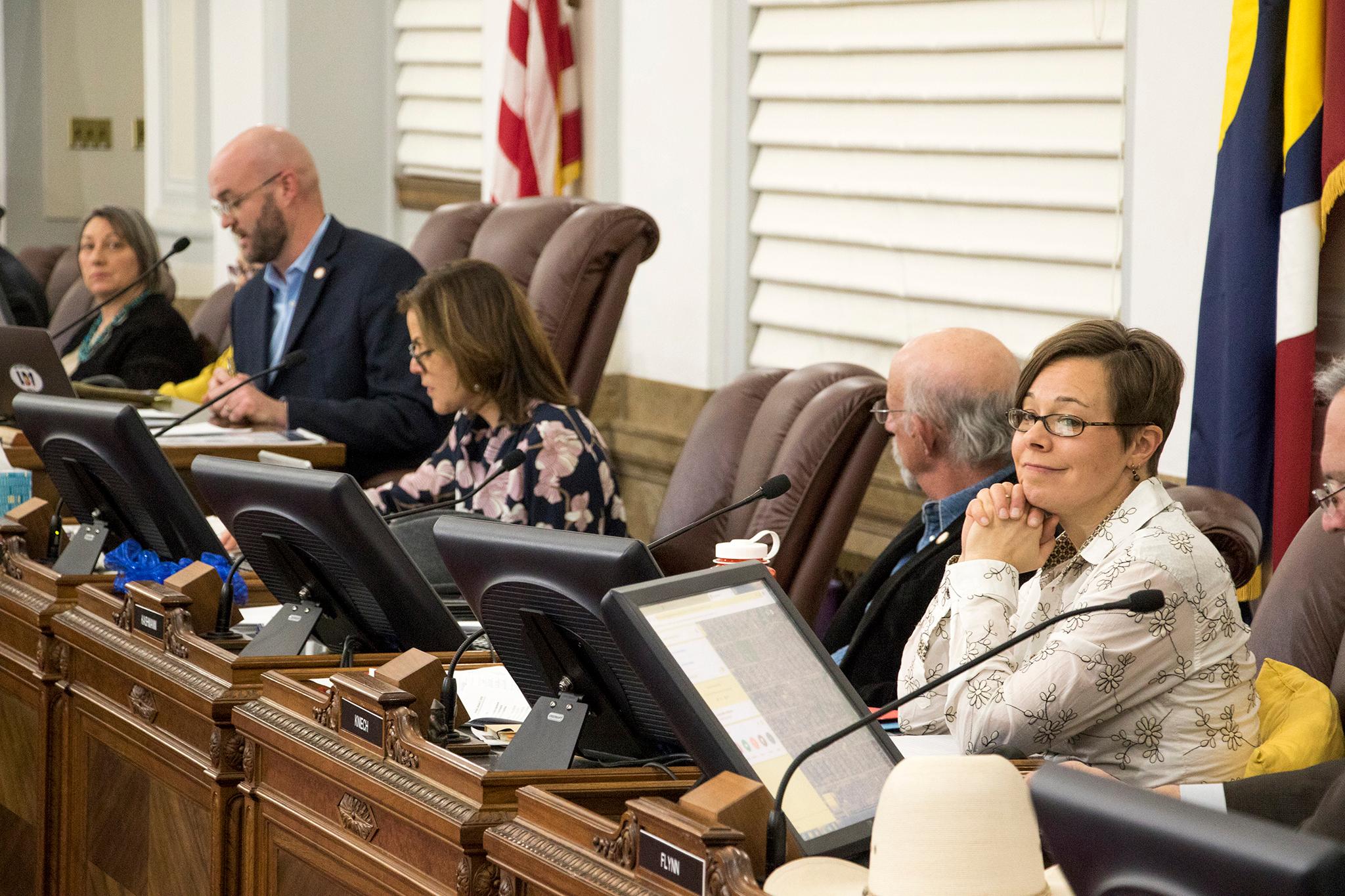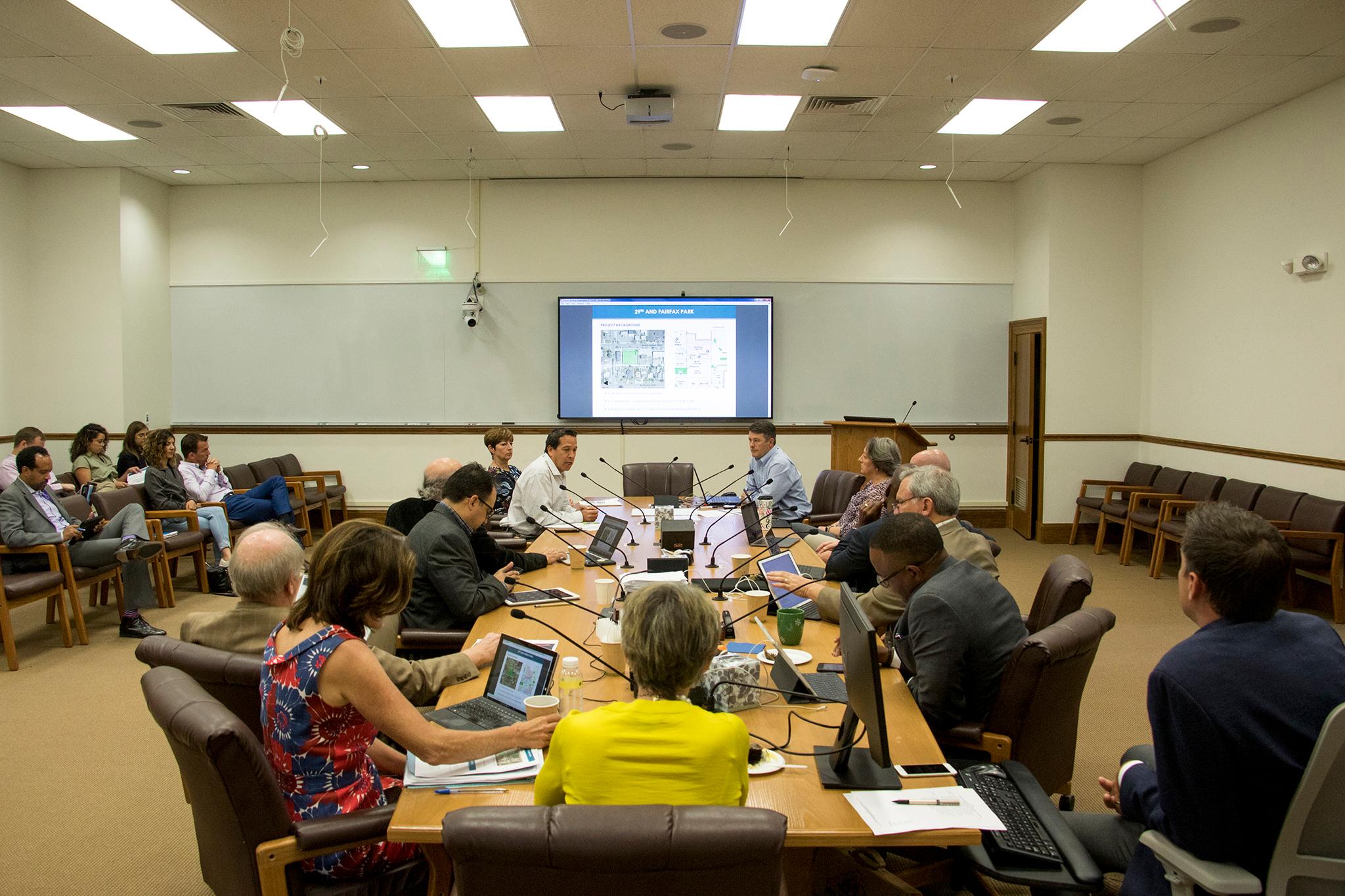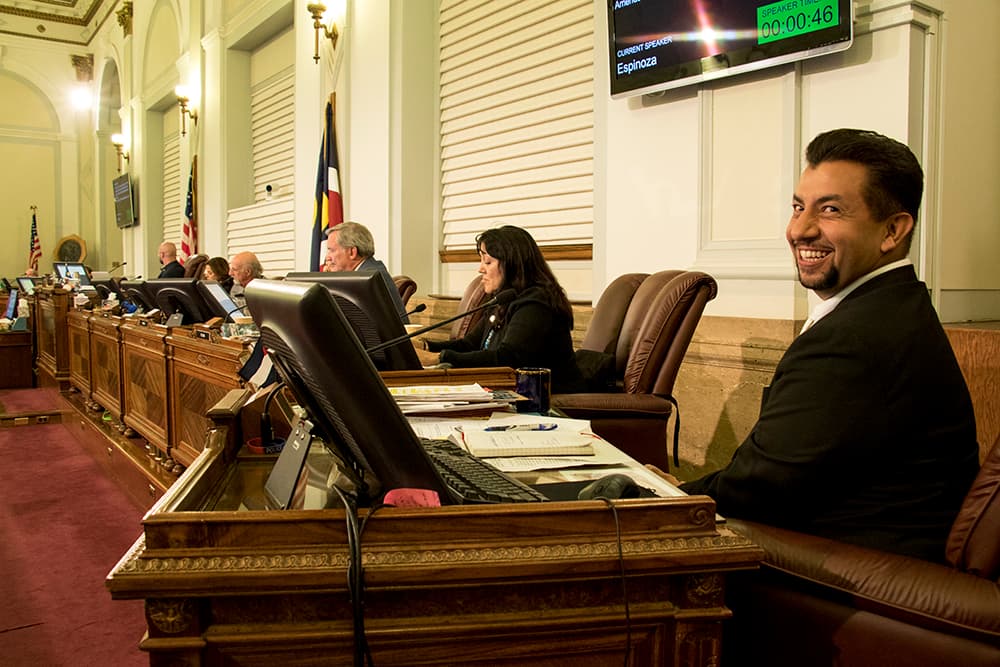Every Monday night, I sit in the press box at the City and County Building (city hall) and watch the Denver City Council make the sausage that every Denverite takes a bite of, one way or another. I call it a "press box" because public business interests me like an Avs game does, albeit at a much slower pace.
Watching laws, budgets, proclamations and resolutions develop is not only something I like, it's something my job requires. But most Denverites aren't local government freaks.
Some are too busy to study the intricacies of the government that affects them. Others might be in the dark because government can be, on its face, boring. Then there are the political scandals and government-sanctioned oppression that can leave constituents distrusting and apathetic.
With the May 7 municipal election approaching, it's time to unpack what the Denver City Council does (and doesn't d0), so you can make an informed vote. City Councilman Paul López, who is finishing his third and final term as a westside rep, agreed to help me jump you through the hoops.
Here are the basics:
Denver has 13 city council people, and that's their full-time job. Eleven of them represent distinct districts divided by population (see which district you live in). Two represent the entire city. Most members are Democrats, but the office is technically apolitical.
Councilors comprise the legislative branch of government -- they make laws. They're meant to be a check on the powerful mayor's office, the executive branch.
The city council can adopt or reject the budget, a gargantuan document literally and figuratively because it dictates Denver's priorities.
Denver has a "strong-mayor" form of government which, among other things, means the mayor sets Denver's priorities because he sets the budget. Don't assume the council will vote down the budget, even though they can.

In practice, council members tell me, the administration gives the legislative body some wiggle room -- a few million here, a few million there -- to put their stamp on the document. The council votes on amendments, and the mayor usually accepts them.
"We have to put our foot down on the budget a lot more, exercise our checks and balance on the administration a lot more," López said. "Council's designed to be a very powerful tool, and I think through the years and over the different turnovers on council, we've lost that collective power."
Your city council makes laws.
The eventual $15 minimum wage for city workers, the ban on urban camping, protections for immigrants. These are a few examples of laws with far-reaching effects passed by the council.
Others laws are small or procedural. The council passed 253 laws between 2016 and 2018. So I guess they could brag to Congress.
Your city council approves large contracts.
The $1.8 billion deal between a public agency and private companies at the airport is just one example. That contract was controversial and elicited vocal criticism from elected officials and the public.
But other contracts are more mundane -- at least in theory. The city council approves lots of contracts by "consent," meaning they've deemed them uncontroversial. These contracts get passed with a block vote, with no public hearing and little to no discussion in public. For example, the council will approve about $700,000 for new dump trucks next week.
Your city council dictates how land is used.
Zoning, an unarguably sexy term, is why neighborhoods look the way they do. Some neighborhoods are compact with lots of destinations and apartment homes, others are totally residential with single-family homes, and some are in the middle.

Council members vote on what's allowed in a given area. These zoning parameters sometimes apply to a large area, sometimes to a single parcel of land. The latter tends to fuel controversy if nearby neighbors don't like the idea.
"It's its own world and its own duty in and of itself," López said.
Your city council makes official gestures. Many are symbolic, some aren't.
Admittedly, I can get huffy when the city council spends dozens of minutes honoring someone or something with official proclamations on Monday nights. My couch is calling!
But official proclamations can mean a lot. A recent proclamation honored the students involved in the West High School Blowout in 1969, when police roughed up students of Mexican descent, including Chicano students, for standing up to educators who shamed them for speaking Spanish.
Fifty years earlier, the city council passed a proclamation commending the Denver Police Department "for professional conduct and prudent restraint." Police used tear gas and batons on kids.
"Doing that (proclamation) 50 years later undoes what the council did then," López said. "Instead of condemning people for speaking up for their first amendment rights, we're honoring them."
Some gestures urge the state and federal government to take action. For example, the council recently resolved to send a letter to the Capitol to urge lawmakers and Governor Jared Polis to pass a bill letting cities and towns set their own minimum wages.
Your city council adopts consequential plans.
Cities don't just happen. The parks, buildings and streets that make Denver Denver require planning. The council adopts most of those plans, whether it's neighborhood guidelines or a 20-year blueprint for growth.
City planners refer to those documents later to determine whether development matches the council's adopted vision.
Your city council investigates government departments.
I'll just let López take this one:
"I hate it when council members say that we're the ones who fill your potholes and put up new street signs," Lopez said. "No, we don't. That's not what we do. That's the mayor's department. The Department of Public Works is at the command of the administration. Where we are effective is when we say, 'Why aren't these potholes filled?'"
Your city council meets with constituents.
All members interact with the public at various rates. It's perhaps the most basic element of their job. Also, my editor would be receiving calls if I omitted that part. Politics, you know?
Now that you know why the city council matters...
...and which district you live in, here are our guides to who's running to represent you in May. (Incumbent candidates in districts 2, 6 and 7 have no challengers.)
This article was corrected. It originally stated that District 4 doesn't have a contested race; it does. District 6 does not.













